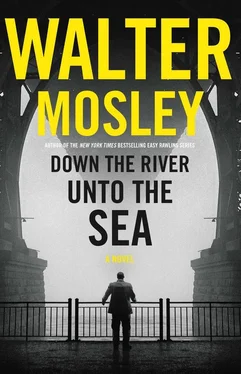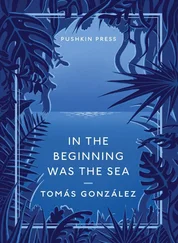I came across the lifelong criminal when the FBI tasked a few city cops to shore up some gaps in a net they set for the Byron gang. Ted and Francis Byron were truly architects of crime. They had planned and carried out at least eight bank burglaries where they were able to blast out an inner wall through to cash-gorged vaults.
On these jobs they always took along a man like Mel in case there was a need to fight.
The job was done at a little after three on a Wednesday morning at a midtown bank on West Fifty-Sixth. I was guarding a subway grate on Sixty-Third that the feds said might be used as an exit. It was just me because they didn’t think it likely that anyone would get that far and the brass was charging them twenty-five hundred dollars a head for boots on the ground.
I listened to the takedown over a secure line that all the participants had. The explosion had come at 3:09. Soon after that, six of the seven bank robbers were captured without a round being fired.
There was a lot of chatter over the seventh perp. I stayed at my post because that was the job and I always did my job — unless there was a woman somewhere in the way.
Thirty-two minutes after the takedown the grate to the subway lifted slightly. I watched from shadow, timing my intervention.
I could have called for backup, but by then the suspect would have escaped. I could have shot him in the leg or foot, or killed him for that matter, but that’s just not the kind of man I am. So instead I waited until one hand shot up out of the ground, snapped a cuff on it, and quickly attached the other link to the heavy metal grating. Then I put the muzzle of my service revolver to the man’s head and said, “Let me see that other paw and it better be empty.”
I received the Medal of Exceptional Merit for the arrest, bestowed upon me by the chief himself. The FBI had me go to their headquarters, where the local director shook my hand.
All that honor went away when Melquarth was put on trial. The other six bank robbers were tried together, but because Mel was captured alone and quite far from the scene, his lawyer, Eugenia Potok, was able to separate him from the rest.
Before I testified, the prosecutor “interviewed” me, suggesting that maybe I heard the accused admit to being involved with the crime. The other men refused to bear witness against one another and so had Mel.
I could not, in good conscience, say anything but what I knew on the stand. I had determined early on in my career that as a cop I would always adhere to the letter and the spirit of the law. Law for me was scripture.
Melquarth beat the charges, and I was transferred to night duty on Staten Island for the next three years.
Time passed. I was framed, incarcerated, and thrown out on my ear — so it’s easy to understand how I might have forgotten all about Melquarth. And then, only two years ago, I was sitting in my office, looking out the window, and thinking about solitary confinement.
“Mr. Oliver,” Tara Grandisle, Aja’s predecessor, said over the intercom.
“Yes, Tara.”
“A Mr. Johnson to see you.”
“Who?”
“He says he wants to discuss a case with you.”
As far as I knew, this Mr. Johnson was just another prospective client. I had no idea that he was the man who earned me three years on a Staten Island boat.
“Send him in,” I said, pocketing my snub-nosed .32 just for insurance.
When Melquarth Frost walked through the door I nearly pulled my weapon.
My visitor smiled and held his arms out, revealing open palms.
I hit the intercom and said, “We need some pumpernickel for the pastrami.”
“Okay,” Tara said. That was our code for her to clear out.
“Mr. Oliver,” Mel said.
“Melquarth Frost.”
“You can call me Mel; all my friends do.”
“I’m not your friend.”
“That might be,” he said. “But I’m yours. Can I sit down?”
I thought about the request a beat longer than was civil and then said, “Sure.”
He was wearing a medium gray suit that was loose enough for freedom of movement but tailored in such a way to look businesslike.
“What can I do for you?”
“Just did three on a nickel in Joliet,” he said, as if this was somehow an answer to my question. “My second conviction and my last.”
The man was the opposite of his suit. He was lean and dangerous-looking, with olive skin, short brown hair, and dark eyes that women must have adored. His hands were heavily muscled.
“You bought a suicide pill or something?” I asked.
“Guy shot me in the back when we were through with a bank job,” Mel said. “Shot me right there in the bank for sixteen percent divided by five.” He shook his head in disgust.
“And he’s out here somewhere?”
“No.” Melquarth Frost just twisted his lips and I felt a twinge of fear. “He hooked up with a girlfriend’a mine after the job.”
“So maybe it wasn’t just the one-fifth of sixteen percent.”
Mel smiled and then grinned. “He was supposed to meet her at the Carving Table in North Chicago one night and someone shot him in the eye.”
“All that public knowledge?”
Instead of answering me he went on. “Cops saved my life and then did this pissant job of framing me. They shoved money from the bank in my pocket, but my lawyer proved it wasn’t me put it there.
“I had an illegal firearm on me. If they had let it alone I’d’a gotten twelve years. But they had to deal it down if the cops didn’t want to be caught doin’ what they do.”
Another thing I noticed about my visitor was the way he sat. His legs were spread wide. He pulled over an empty chair and laid his left wrist on top of the backrest. His right hand lay on his knee. It was as if he was at home, enjoying life more than a billionaire.
He gazed at the space above my head, thinking about a hard life with a sense of élan and maybe even a little whimsy.
“So?” I said before he tried to move in.
“I got five years, and from the first day they had me in solitary confinement.”
I must have winced, because a smile flitted across the career criminal’s lips. He nodded slightly.
“It almost broke me,” he continued. “Almost did. I remember shouting for days. Then I cried. And finally one morning — I guess it was morning because that’s when I woke up. On that morning I found the peace to think about my life. I went over the whole thing from grade school to solitary, and you know what I figured?”
“Not in the least.”
“That in all that time you were the only one treated me fair.”
“What the fuck? I arrested you for bank robbery.”
“You coulda shot me. You coulda hit me in the head with a lead pipe. You sure as shit coulda testified that I had somehow mentioned the bank job. I know your bosses were mad when you didn’t lie.”
Mel leaned forward, now with both hands on his thighs.
“So you came here from Illinois to thank me?” I asked.
“I already told you,” he said. “I’m not goin’ back to prison. I came out here to ply my old trade and to tell you that if you ever need a good turn I owe you a few.”
That was a very important nexus for me. It was rare for anyone to see in me what I saw in the mirror. Melquarth might have been a villain, but he was a villain with my number in his pocket.
I wasn’t about to share that intelligence with him.
“What kind of trade?” I asked.
“Watchmaker.”
“Really?”
“When I was fourteen they wanted to put me in juvie for assault and battery. The judge gave me a choice of enrolling in an after-school program or being locked up. I chose watchmaking with a little Jew named Harry Slatkin who did watch repair on Cherry Lane. He taught me a lot. Later on I applied that knowledge to bomb making, but in my spare time I studied watches.”
Читать дальше









